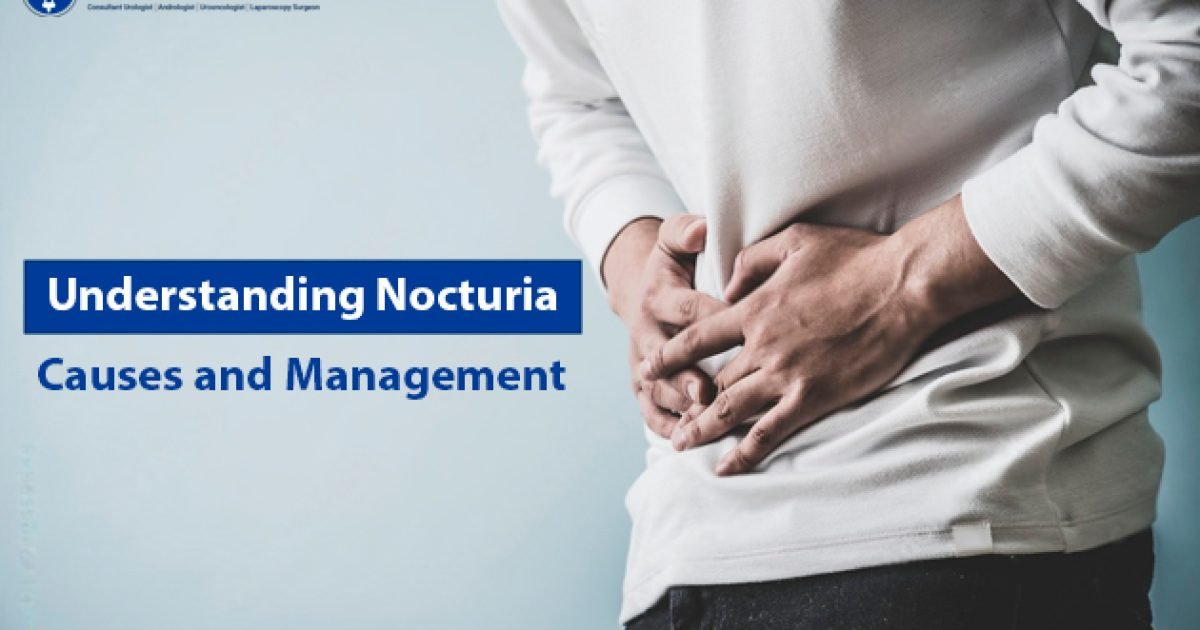Nocturia, a condition that causes frequent urination during the night, can be a disruptive and challenging issue for many individuals. On having defined what nocturia is in the previous section of this blog post, now, in this particular one particularly with the support of Dr Saket Narnoli, a urologist , their causes, symptoms and, most notably, the available nocturia treatment options will be discussed.
What is Nocturia?
Depending on how your body is affected, nocturia can be defined as the capacity to wake up during the night to urinate while compromising your normal sleep rhythm. Though nocturnal bathroom visit is only a one-time incidence that occurs at night while the patient is still asleep, on the other hand nocturia is the multiple visits to the bathroom and therefore disrupts the overall sleep cycle and is Painful Urination.
.
Causes of Nocturia
Nocturia can be caused by several factors and therefore identifying the nocturia causes is vital to the management of this condition.
Excessive Fluid Intake
Eating certain foods and beverages that contain spices or spices that stimulate the urinary system and drinking large amounts of fluids before going to bed are also common contributing factors to nocturia. These drinks can irritate the bladder and cause volume expansion and hence lead to more frequent urination.
Medical Conditions
Several medical conditions can cause nocturia:
Diabetes: Among the consequences of high blood sugar levels, one can note increased production of urine.
Heart Disease: Generally, it appears in patients suffering from heart failure, when the fluid accumulates in the legs during the day and returns back to circulation and is filtered by the kidneys during the night.
Kidney Disorders: Nocturia can be as a result of reduced ability to concentrate urine, or change in urine production that results from kidney problems.
Urinary Tract Infections (UTIs): A UTI can inflame the bladder this brings in the aspect of frequent urination.
Medications
Diuretics taken for high blood pressure: They do increase the output of urine from the body. Some of these drugs, especially when taken in the later part of the day cause the patient to have to wake up at night to urinate.
Sleep Disorders
Conditions such as sleep apnea can be another reason for nocturia causes. If breathing is halted during sleep, the urine output increases.
Aging
With age, the bladder capacity shrinks and the urine production at night increases resulting in nocturia. Also, hormonal changes will also influence bladder functionality among the elderly population.
Symptoms of Nocturia
The most common sign presented by a patient diagnosed with nocturia is the need to get out of bed to urinate severally throughout the night. However, it is often accompanied by other Nocturia symptoms:
Interrupted Sleep: This is another major problem that results in moving around often; fatigued and easily irritated individuals are constantly awake, visiting the washroom.
Urgency: Another mode of incontinence, it is a rather intense desire to urinate which is hard to suppress.
Volume: Night time frequency was associated with large volumes of urine produced.
Impact on Quality of Life
Thus, nocturia dramatically affects the quality of life and presents a massive unmet need area that can benefit from drugs. Poor sleep can lead to a range of issues, including:Poor sleep can lead to a range of issues, including:
Daytime Fatigue: This is the morning rutting feeling where one wakes up exhausted as if they did not get a good night’s sleep.
Mood Disturbances: These lead to the development of traits like poor tolerance, anxiety, and in severe cases depression from consistent inadequate sleep.
Decreased Cognitive Function: These are factors that can be greatly affected because of inadequate sleep: concentration, memory, and decision making processes.
Diagnosing Nocturia
If you’re experiencing nocturia, it’s essential to consult with a healthcare professional like Dr. Saket Narnoli. The diagnosis typically involves:
Medical History and Physical Exam: A patient ’s physician will complete a medical history and general clinical examination.
Fluid Intake and Output Diary: They can be caused by many things including-fluid intake and diary of urinations and dressing.
Urine Tests: Different aspects related to the urinary system or other various infections, kidney problems, or other abnormalities can be defined using this test.
Blood Tests: These can diagnose diabetics, check renal functions and any other possible related diseases.
When to See a Doctor
If you wake up to urinate frequently that hampers your night’s sleep and nocturia causes you to wake up tired in the morning then you need to consult your doctor. Nocturia can be therefore managed through proper diagnosis from Dr. Saket Narnoli and his team after establishing the cause of the condition.
Conclusion
Nocturia is not a fun issue to deal with but one that can easily be dealt with under the right line of nocturia treatment. Awareness of what triggers it and the signs to look out for is half the battle won. As advised by Dr. Saket Narnoli, one can seek medical advice and make necessary changes in the treatment process along with making changes in the daily habits that affect the quality of sleep






